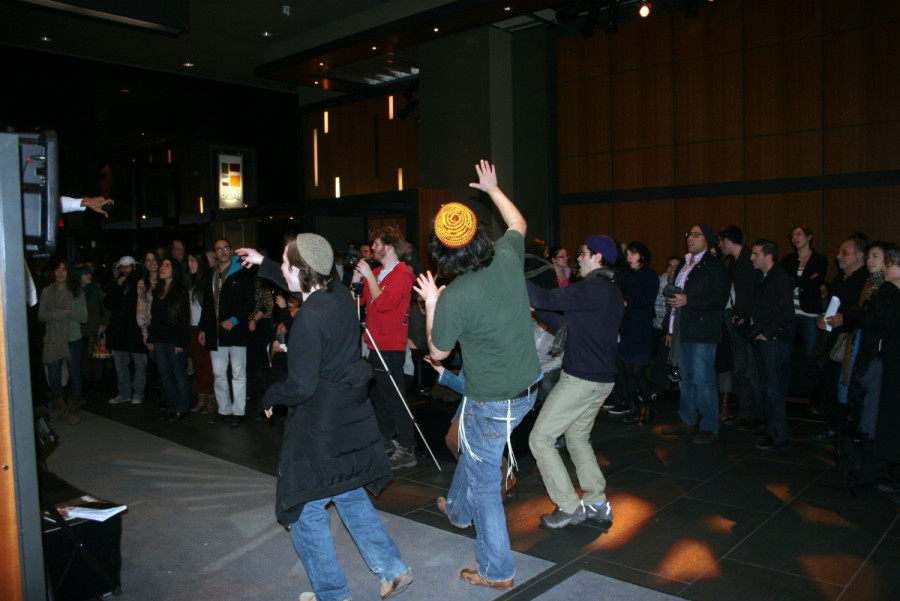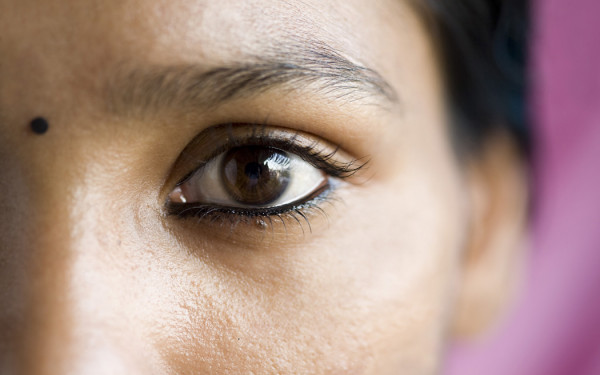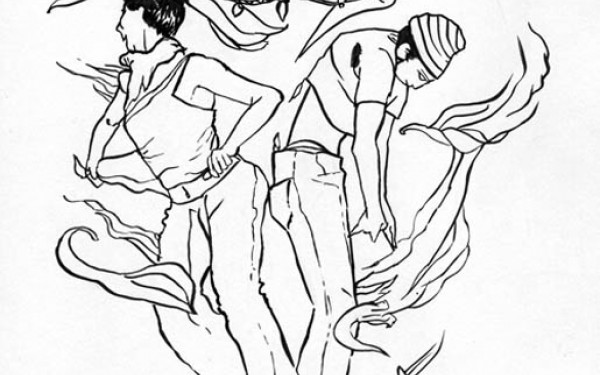An Underground Identity
Alternative Jewish Culture in Film and Music
For Punk Jews director Jesse Zook Mann, Judaism is more than just observing tradition, heritage and religious laws.
“For us in New York, Judaism has kind of become sterilized,” said Zook Mann.
He was called from California through Skype for a Q&A after the 20-minute long preview of his documentary which was promoted at the alternative Jewish festival Le Mood on Monday night at the Segal Center.
“Our family was Jewish in the sense of the holidays we always celebrated and I grew up with the sense of what the Holocaust meant, and what Israel meant,” said Zook Mann.
“This movie was kind of an exploration for myself, as much as it was a place for us to tell a story.”
The most memorable part of the preview was the Cholent party, a New York underground event where Jews of all stripes get drunk, dance and play loud music. The name comes from Cholent, a traditional meat stew, which is served at the party.
“Punk Jews gives a glimmer into a society that a lot of people see as insular, exclusive, rigid and dogmatic,” said Marley Sniatowsky, who facilitated the discussion. “It shows that there are people who are trying to be individuals in their faith.”

“If you look at the [amount of] socio-political movements [that] have been lead by Jews, I don’t think that’s an accident,” said Zook Mann.
“There’s a book by Steven Lee Beeber, [The Heebie-Jeebies at CBGB’s,] that discusses how the early punk-rockers were all Jewish, from the Ramones to Lou Reed, and many of the early socialists and anarchists came from Jewish backgrounds. The sort of Jewish value of social justice spurred a lot of these movements.”
Laura Yaros, host of Matrix, a feminist and progressive program for Radio Centre-Ville, asked about lack of woman in the preview.
“I was looking at the Cholent party and the women were kind of sitting on the sidelines,” said Yaros. “The men were up there, dancing and playing the music […] there was the punk band and the Jews of colour and, again, all the men were in the forefront.”
Zook Mann said that his team struggled to find women to feature in his documentary.
“We wanted to show the movement and the scene really for what it is and the silences we see in gender really tell a story in itself,” he said noting that he didn’t want to include women for the sake of having women and said that he was looking for people with stories of struggle.
“I thought that the question that the woman brought up […] was really cutting,” said Sniatowsky in response the the one-sided gender portrayal. “I hope that they deal with that in the [full length version]”
Hip-hop artist Y-Love (Yitz Jordan) is featured in the documentary, and hosted his own discussion workshop following the Punk Jews preview.
He’s a black Hasidic Jew who converted while exiting his teen years. He grew up in East Baltimore and was raised by a single Puerto Rican mother. Both his mother and grandmother supported his interest in Judaism.
Y-Love felt that he identified better with the Hasidic community based on their philosophy of acceptance and the belief that “God had a plan for all of them.”
“I found a lot less racism in the Hasidic community,” said Y-Love. “The extent to which a Jew identifies as a white person from their country is to the extent to which they’ll identify with the racism that goes with the construct of whiteness.”
The artist explained that Hasidic Jews had “no connection to one nationality,” because many of their ancestors traveled from one country to the other.
For more info on the documentary Punk Jews click here.


_600_832_s.png)



__600_375_90_s_c1.jpg)